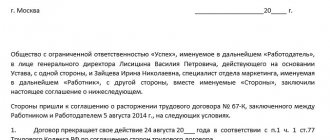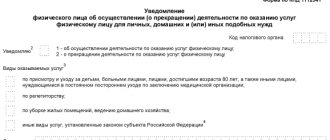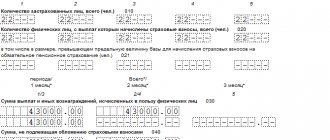Paying taxes is an obligation that applies to every employed member of society. The existing system of collecting fees is a product of gratuitous contributions by individuals and organizations to ensure the functionality of the state, municipalities and the maintenance of disabled categories of citizens. Employees who decide to quit often ask their employer the question: is compensation for vacation subject to an insurance premium or not?
For officially employed people, the employer automatically makes monthly contributions to the inspectorate. Taxable income includes salary, bonuses and vacation payments, work on holidays and overtime, sick leave, compensation for unused vacation upon dismissal.
Basic Concepts
An employee employed at an enterprise pays personal income tax, calculated by the accounting department of the institution in relation to the amount of his salary - 13%. Article 217 of the Tax Code establishes the types of income that are not subject to taxation.
These include:
- benefits received in connection with pregnancy and childbirth;
- compensation for harm to health;
- expenses for advanced training of specialists;
- payments upon dismissal, except compensation for vacation;
- financial assistance to relatives of a deceased employee, as well as to victims of natural disasters;
- compensation in connection with sanatorium-resort treatment;
- gifts, the cost of which does not exceed 4 thousand rubles;
- payment for medical services;
- compensation for payments on loan obligations in connection with the purchase of housing.
Vacation compensation in case of dismissal is not included in their number, therefore the employer must make a contribution to the inspectorate from this amount. This payment is understood as the accrual of funds to an employee if he submitted a letter of resignation of his own free will, but during the worked calendar year did not have time to rest 28 days, or less than part of the vacation. This responsibility falls on the organization in accordance with Article 127 of the Labor Code. He has the right to resolve this issue differently, for example, before dismissal, use state-guaranteed rest, but in this case the employee will receive money in the form of vacation pay, based on the number of days and salary.
Attention! Article 422 of the Tax Code describes the amounts of income that are not subject to collection by the Social Insurance Fund. Clause 2 contains information about the absence of fees regarding payments upon dismissal, with the exception of compensation for unused rest days.
How is vacation compensation paid?
To receive “vacation” compensation, the reasons for terminating the employment contract are not important, this is exactly what Rostrud indicated in its letter dated July 2, 2009 No. 1917-6-1. If, at the time of dismissal, an employee has not taken time off not only from his main annual 28-day leave, but also from additional (for example, during irregular working hours, when working in harmful and dangerous conditions, or for work in the Far North), then compensation is paid to him for such a vacation too.
Unused vacation is compensated when an employee is transferred from one organization to another, as well as when he is hired for another position in the same place of work, but through dismissal (Article 77 of the Labor Code of the Russian Federation).
The number of vacations that an employee has accumulated is not limited - he must receive compensation for all unused days, since the law does not limit the period for using vacation (Article 127 of the Labor Code of the Russian Federation).
The employee must be given compensation for vacation along with his salary, bonus and other payments due to him on the last day of work.
Please note that “vacation” compensation is not always associated with dismissal: an employee may ask to replace additional leave exceeding the standard 28 days with monetary compensation. This replacement does not apply to regular vacation (Part 1 of Article 126 of the Labor Code of the Russian Federation).
Vacation compensation is not due to those employees who quit after working less than 15 days, as well as those working under GPC contracts (Article 11 of the Labor Code of the Russian Federation, letter of Rostrud dated 06/08/2007 No. 1920-6).
Compensation payments upon dismissal
According to current legislation, the procedure for leaving a job is preceded by the employee filing an application as a notification to the manager 2 weeks before he leaves the organization. The specialist has an obligation to work 14 calendar days for the director to find a new employee. This rule applies if he does not belong to a preferential category of the population. The next step is to issue a dismissal order, in which the person signs, which is considered to be his familiarization with the issued document. The contract with the employee is terminated. On the last day, a work book with the corresponding entry is issued and payments are calculated.
Mandatory ones include:
- wages due to the employee for the days he worked during the last month;
- compensation for unused vacation days (if he was on vacation for 28 calendar days, this payment is not provided).
Calculation and accrual upon dismissal is carried out by the accounting department, the amount depends on the number of days worked and the average salary.
For example, a citizen has a monthly income of 50 thousand rubles. The employee wrote a letter of resignation on April 5, taking into account 14 days of work, his last working day is considered to be the 18th. Thus, during the month, the citizen performed his official duties for 14 shifts out of 22. Dividing the salary by the number of days worked, we get the accrued salary in the amount of 35 thousand 700 rubles.
To determine the amount of compensation for unused vacation, the accountant needs to know how much the average earnings of the dismissed person are for the last 12 months of work. It is calculated using the formula: the amount received by the employee during 1 year / 12 months / 29.3 (average number of calendar days in a month). To obtain the payment amount, average earnings per day * number of vacation days. For example, 50 thousand rubles / 12 / 29.3, we get 1706. 1706 * 28 days of rest = 47781 - compensation for unused vacation.
Payments upon termination of an employment contract
Regardless of the reason for which an employee resigns (on his own initiative, by mutual agreement or at the request of the employer), he has the right to count on mandatory payments and compensation. This right is guaranteed to every working person by labor legislation. Such payments are:
- wage;
- compensation for unused vacation time;
- severance pay based on termination of employment relationships.
In some cases, the collective agreement also provides for other benefits, for example, when an agreement is terminated by mutual consent of the parties.
On an individual basis, the employer can provide financial compensation in the form of personal incentives. All monies due must be paid to the employee on the day of his dismissal. The law excludes material compensation for unused vacation days from the list of non-taxable payments. Therefore, it is mandatory to withhold insurance premiums from vacation compensation upon dismissal in 2020.
It is important to note that taxes are not paid to the insurance fund if the termination of the employment relationship is associated with the complete liquidation of the company or a layoff procedure, as well as:
- if an employee is called up for military service;
- with complete loss of ability to work;
- in case of termination of the employment relationship as a result of circumstances that did not occur at the will of both parties.
At the final settlement, employees are provided with severance pay in the amount corresponding to two months' average earnings, and in the absence of employment opportunities - in the amount of three months' income.
An employee has the right to fully paid leave, based on the actual time worked by him at this enterprise. This right begins after the first 6 months of employment. The transfer of legal rest is possible only in case of urgent production necessity and is fixed by the corresponding order of the employer.
At his own discretion, the employee has the opportunity not to use the vacation period, but not more than two years in a row. He may demand financial compensation or transfer the remaining vacation days to the next year. For some categories of personnel, additional leave is established, for example, during irregular hours or at enterprises with particularly hazardous production conditions.
Taxation of vacation compensation upon dismissal
The answer to the question whether compensation for unused vacation is subject to taxes is contained in Article 217 of the Tax Code. 13% is withheld on the day the employee receives the payment. If this period falls on a holiday or weekend, the amount will be credited to the employee and to the tax office on business days. In addition, the company pays contributions and fees to the insurance company and pension fund to form a pension.
Carrying out collections to the tax authority
Taxation of compensation for unused vacation upon dismissal is carried out through the employer. The accountant makes payments, sends statements and funds to the current account of the tax office.
The employee does not participate in this accrual option; he receives earnings minus 13%. In labor legislation, there are situations when citizens, if there are grounds, return income tax, or fill out an application at their place of work with a request for no deductions. Such conditions include the sale or purchase of real estate, expenses during the year for treatment or education for yourself and close relatives. If such an application is submitted to the employer, no monthly payment is made to the inspectorate.
Types of mandatory tax payments and contributions
During the period of dismissal, as well as in the case of continued employment, the specialist is a taxpayer, and the company is an agent who transfers money to the recipient’s account. Insurance premiums and taxes are required to be paid on compensation for unused vacation.
These include:
- 13% of income;
- to the pension fund;
- social insurance fund;
- off-budget funds, if citizens' pension savings are in them.
It is important to know! Other compensation payments received by the employee in the event of leaving the position are not subject to tax and insurance contributions.
Is compensation for unused vacation always subject to insurance premiums?
There is only one situation where vacation compensation is not subject to contributions. This is the case of payment to close relatives of a deceased employee. The obligation to pay it is directly established in clause 33 of the rules on regular and additional leaves, approved. CNT of the USSR 04/30/1930 No. 169. There is no direct instruction on the exemption of payments from contributions in legislative acts.
- in the absence of an insured person, the calculation and payment of insurance premiums have no basis;
- The employee's family members do not have an employment relationship with the organization paying vacation compensation.
Based on this, the Ministry of Finance of the Russian Federation came to the conclusion that when paying vacation compensation to the relatives of a deceased employee, insurance premiums are not charged or paid.
So, currently, insurance premiums for compensation for unused vacation must be paid in all cases, except for its payment to family members of a deceased employee.
In what cases is compensation not subject to tax?
Vacation compensation is subject to insurance premiums and fees in all situations except in one case, which is an exception. There is no taxation if the resigning employee dies, and his relatives receive payments at the place of earnings.
Labor and tax legislation operate simultaneously, the rules of law do not contradict each other. The state has defined compensation for unused vacation as the only payment subject to taxes and insurance premiums. Their payment is mandatory and is controlled by the company’s accounting department, which is responsible for paying the employee.
Do I have to pay?
To find out whether compensation upon dismissal is subject to insurance contributions, you need to figure out in what case you can not pay into social funds. Such situations are listed in Art. 422 of the Tax Code of the Russian Federation. In para. 6 pp. Clause 2, paragraph 1 of the article states that amounts associated with the dismissal of employees are exempt, with the exception of certain situations. And it is explicitly stated that compensation for leave upon dismissal is subject to insurance contributions. As well as the amount of severance pay and payments for the period of employment within 3-6 months after the layoff.
Personal income tax payment
Personal income tax is a tax on personal income. This concept is regulated by Chapter 23 of the Tax Code of the Russian Federation, part two.
Withholding income tax on compensation due to an employee of an enterprise is regulated by Article 217 of the Tax Code of the Russian Federation. Thus, according to paragraph 5 of clause 3 of this article, compensation for unused vacation is an exception to the list of non-taxable payments. Thus, withholding personal income tax from monetary compensation for vacation is mandatory.
Article 224 of the Tax Code of Russia sets the tax rate at 13% (in other cases specified in this article, this value can vary from 9% to 35%).
It is worth noting that in such a situation the employee is directly the taxpayer, and the employer acts as a tax agent. Based on this, the monetary value of 13% will be withheld directly from the amount due to the employee , and the remaining 87% of the compensation will be issued to the employee. The employer does not bear the tax burden and additional expenses.
According to paragraph 4 of Article 226, the tax agent represented by the employer must withhold income tax at the time of the actual payment of funds to the employee of the enterprise.
In this case, the deadline for transferring the withheld income tax to the Federal Tax Service, in accordance with paragraph 6 of this article, is the next day after the day of payment of income to the employee (taxpayer).











